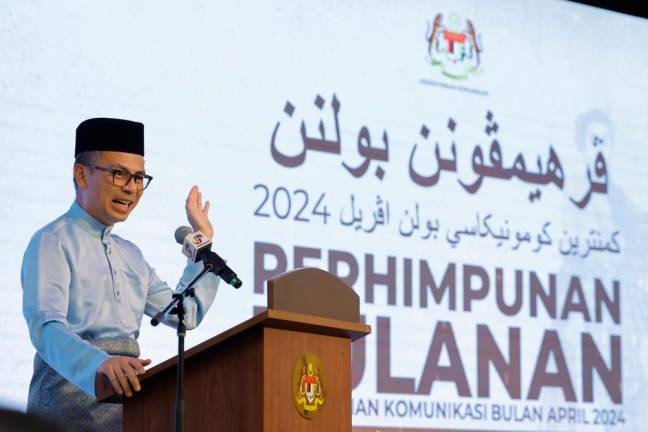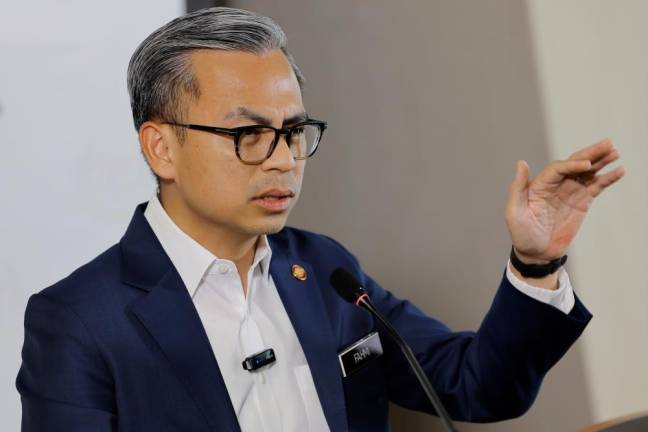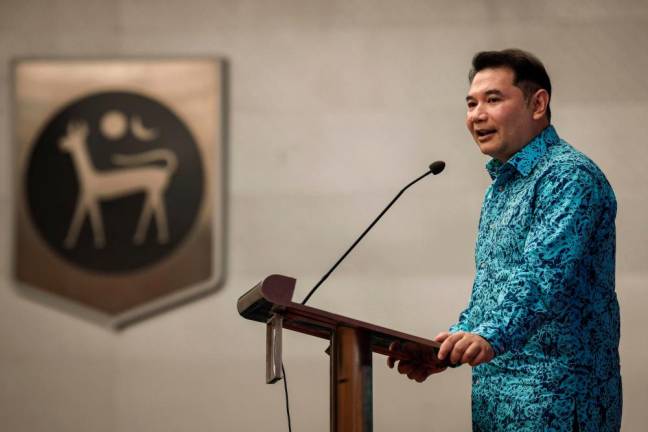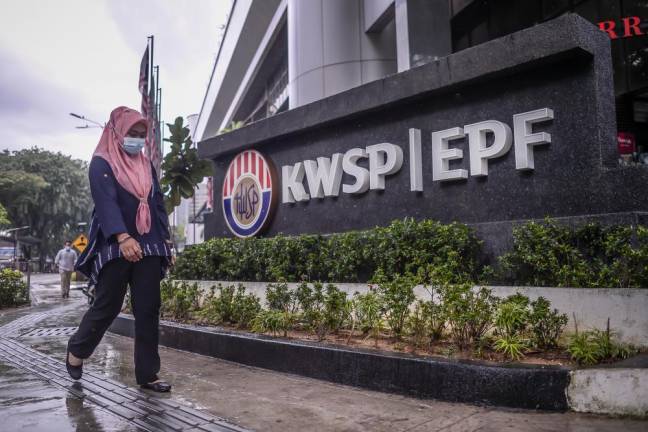NOT long ago, two sisters, Susan and Olivia (not their real names), both in their mid-80s had come to my constituency office in Petaling Jaya to seek help with their expenses. For the last 30 years, both sisters were living alone on the RM1,000 monthly pension that Susan received. The sisters had no other family members to look after them and struggled to balance their expenses with the ever-increasing cost of living they had to bear.
Earlier this year, both sisters sustained severe injuries when a motorcyclist crashed into them as they were crossing the street in front of their home. Susan had injured her spine and was forced to recover in a nursing home that costs RM1,500 a month. The hospital bills and medication alone used up most of their savings.
Sometime last week, I received the sad news that Susan had passed away due to her injury, leaving Olivia all alone and without any source of income at the age of 86.
According to a report by Universiti Malaysia’s Social Wellbeing Research Centre, the number of Malaysians aged 60 and above is projected to reach 3.5 million in 2020 and 6.3 million in 2040. This figure is equivalent to around 20% of our population.
Malaysia’s ageing population is a great matter of concern. The government needs to prepare for this and to provide a framework for a better social support system for the elderly.
Promoting elderly health must become a priority. Healthier individuals will be able to lead longer productive lives and delay the rate at which mental and physical deterioration occur.
I am setting up a senior citizen activity centre known also as Pusat Aktiviti Warga Emas (PAWE) that will specifically target the B40 community in Petaling Jaya. The centre will run activities and programmes to encourage elderly citizens to remain active especially during retirement. The unique thing about this centre is that it will be run by senior citizens and provide a healthy and active environment for elderly individuals from low-income households who are often neglected by society.
These activity centres are one way of keeping elderly citizens active but it is not enough, and more support is needed.
In Germany, grants were introduced to allow elderly citizens the opportunity to live in community apartments. These serve as an alternative to full-time care homes.
There are also multigenerational houses or “Mehrgenerationenhaus” which serve as social centres for the elderly where younger families can drop by for socialising or support and where the older generation volunteer by reading and interacting with children.
The government should also look at implementing policies that encourage and reward elderly individuals who are actively volunteering and engaging in care work for example in childcare, helping the disabled and even advocacy work.
Aside from this, we also need to start looking at how our healthcare system can cope with the changing demand in our population.
There must be concrete policies to protect and promote healthy living. Among this include improving diets, leading more active lifestyles and vaccination among the elderly for diseases such as influenza, pneumonia, and shingles.
In Canada for example, the government has invested more and more money into drugs and home-care programmes.
Meanwhile, looking at Japan, which has for the past three decades held the distinction of having the world’s oldest population, healthcare service providers are dispersed according to local needs while benefits for insurance are being prioritised for long-term care (which is separate from the medical care system for treatment due to illness injury, preparation for hospitalisation, surgery, outpatient visits and medication treatment).
In Malaysia, the government should start to focus on prevention as opposed to hospitalisation while more doctors and healthcare providers should be encouraged to specialise and receive training in geriatric care.
Another huge factor affecting the elderly is financial sustainability post retirement.
According to the Employees Provident Fund (EPF), only seven million of its 14 million members are actively contributing to the EPF retirement scheme. Meanwhile, more than two-thirds of EPF members aged 54 had less than RM50,000 in their retirement savings. They also revealed that 70% of EPF members who withdraw their funds at age 55 use up their savings less than a decade after retiring.
Someone who retires at age 55, would need RM240,000 to spend RM1,000 every month by the time that person reaches 75 (the average lifespan of Malaysians). With the rising cost of living and increasing life expectancy, this figure will clearly not be enough to pay for housing, food, healthcare, utility bills, transport and other expenses.
Welfare benefits such as the RM300 a month provided by the Welfare Department (reserved only for elderly individuals without any source of income and support from family), and schemes such as the RM100 Skim Mesra Usia Emas shopping vouchers provided by the Selangor government are hardly enough.
At the same time, more and more elderly individuals are choosing to go back to work because they can no longer afford the cost of being in retirement.
Raising the minimum mandatory retirement age to 65 is something that many countries have sought to implement. This proposal was also brought forward to the Cabinet as recently as last month, only to be met with concern over the employability of youth.
However, raising the mandatory retirement age is not enough and we would need a long-term solution to the problem that can ensure that the elderly have the necessary finances to live comfortably in old age.
It is time that the government consider expanding financial literacy courses that look towards retirement. This includes budgeting and spending as most people do not realise how much they need in their retirement. These courses must start early in an employee’s career and are especially important the closer that person gets to retirement.
The UK Government in its paper on the “Future of an Ageing Population” had proposed that the UK move towards a model where individuals are reskilled through job-related training throughout their careers so that workers are better prepared to deal with the major changes to the workplace as their working lives lengthen.
Enhancing technological and financial skills are particularly important as they can be used by older people to become engaged in emerging technologies.
Another option would be to introduce a gradual retirement scheme that allows older workers to lower their working hours and yet remain in the workforce longer.
As Malaysia moves towards an ageing population by 2030, we must start taking steps to prepare for the changes it will bring to our society with clear policies.
To allow our citizens the chance to be able to age with dignity is something that is worth pursuing. It is therefore important that any policy we pursue recognises elderly citizens as individuals to be treated with the respect and dignity they deserve and not merely provide them with meaningless and degrading tasks to keep them occupied.
Comments: letters@thesundaily.com










